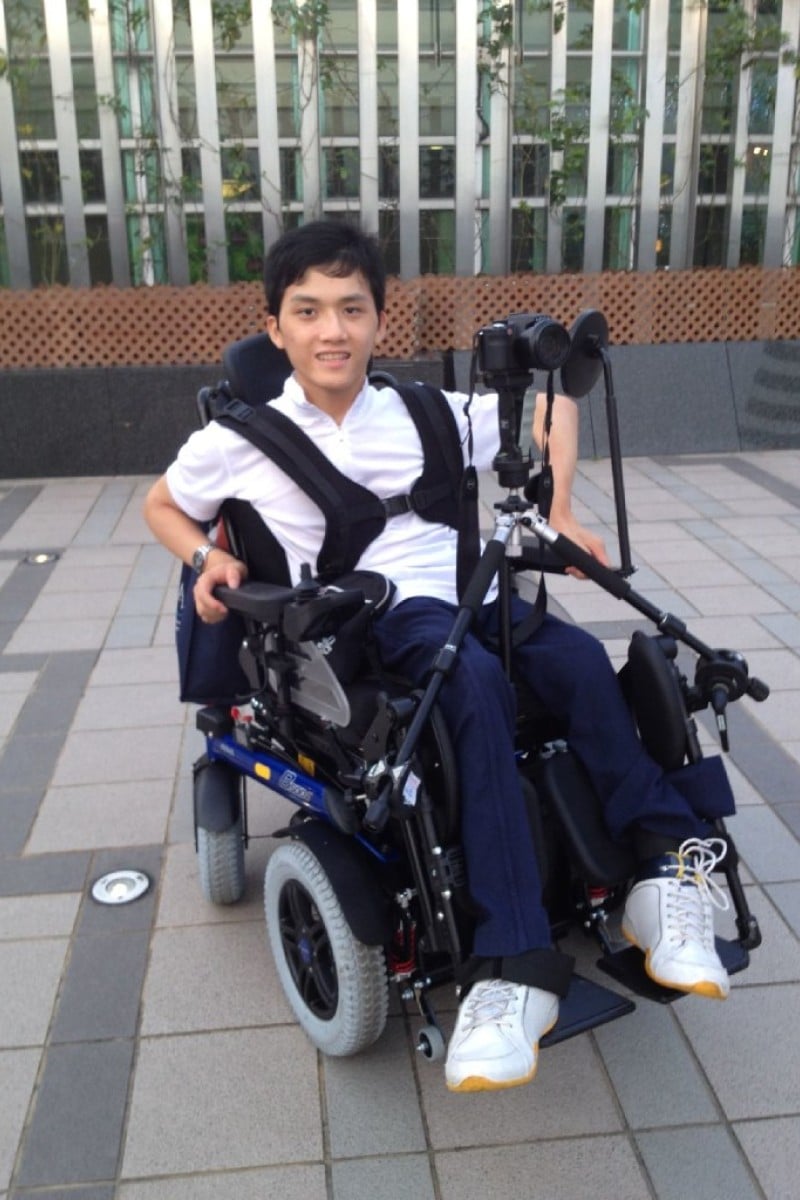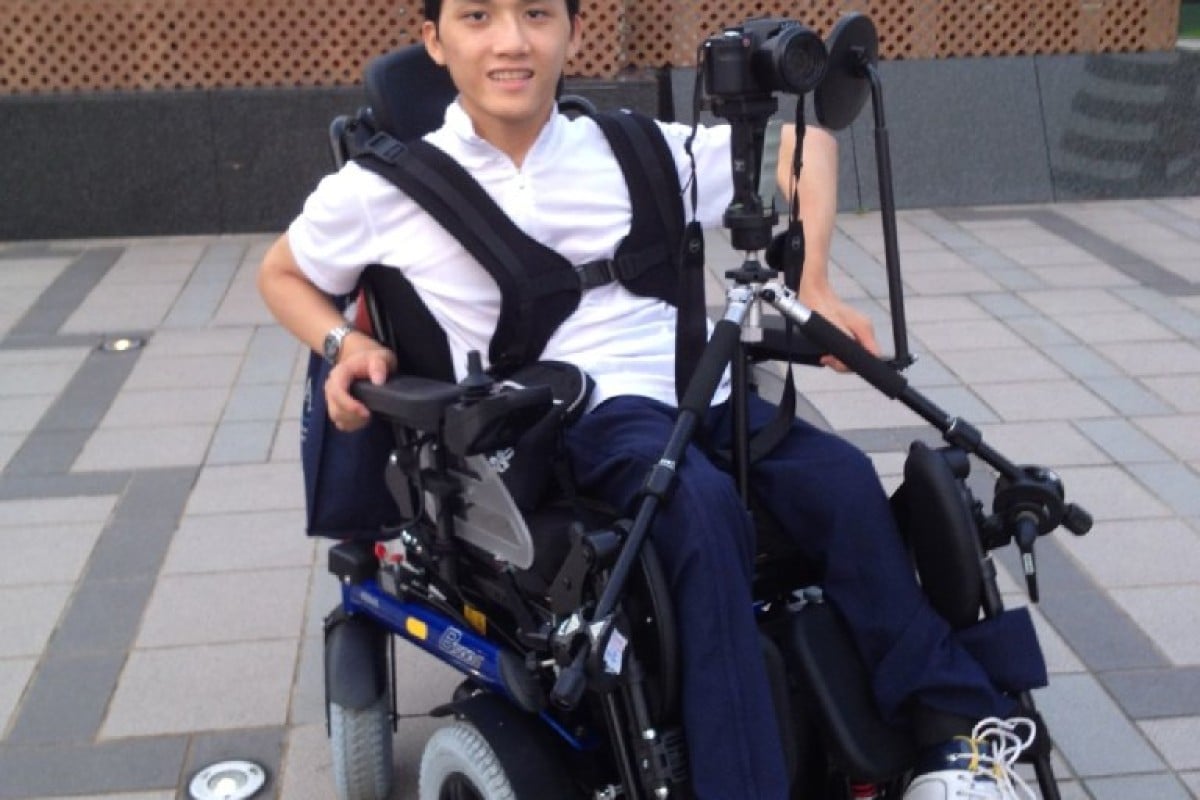
Wheelchair proves no limit to Hong Kong SuperHeroes and their dreams and ambitions
Marvin Chan Yuk-lun and Macy Lai Man-sze suffer from rare neurological diseases, but they won’t let it get in the way of their goals
 MarvinChan loves photography, and his wheelchair is customised to allow him to attach a camera to it.
MarvinChan loves photography, and his wheelchair is customised to allow him to attach a camera to it.We all have dreams, but how far are you willing to go for yours? For Marvin Chan Yuk-lun, there’s no limit. That’s why the SuperHero programme, which encourages Hong Kong youths to pursue what they love, chose Chan as one of 10 winners given the chance to make their dreams a reality.
Chan was born a healthy, energetic boy. A family album shows him running around and riding bikes like a happy, typical three-year-old. “At least I had that experience when I was still able to,” says Chan, who now permanently uses a wheelchair.
No one suspected a thing when he became clumsy and fell down at the age of four. His family thought it just was the odd slip, until his condition became worse and began to affect his hands and arms. He started to lose control of his body, and doctors couldn’t work out why, or if he would ever get better.
For a while, hospital was home. Chan went in and out, fell into comas and awoke, and underwent different treatments. Whenever his health improved, he would go to school, even for a couple of hours.
It wasn’t until he was seven that doctors finally diagnosed his condition: Primary Torsion Dystonia I, which causes repetitive and painful muscle contractions leading to uncontrollable twisting movements. It’s a rare disease and there is no cure for it.
Chan took pills to help relax his muscles and ease the pain. Some of them came with side-effects and he needed to take more pills to combat those effects. “More than 40 pills at most, each day,” he recalls.
Now 23, Chan takes annual trips to Beijing for stem cell treatment. He’s still not able to fully control his muscles, but he’s been in less pain, and has picked up a few hobbies. He likes to observe the world through painting and photography.
It isn’t easy, though. To paint, Chan needs an instructor to hold the canvas right in front of him, so he can work on it. For photography, his former teacher at Hong Kong Red Cross John F. Kennedy Centre helped him install a tripod on his tailor-made wheelchair so he doesn’t need to worry about holding a camera.
With his camera, Chan likes to document the city from his perspective. One of his favourite photographs is of a figure in a wheelchair staring at a fence in front of him.
“The disabled have many obstacles in front of them, whether physical or not, but they carry on no matter what,” says Chan.
His dream is to hold a photo exhibition titled “What Hong Kong Forgets”. “I want more people to be aware of our needs ... and that we can do what you can,” says Chan.
Fellow winner Macy Lai Man-sze, 17, suffers from cerebral palsy and the only body part she can control is her head. Going to hospital has just been part of her routine since she was born. Macy has difficulty speaking, so she uses a programme and a board attached to her wheelchair to communicate.
Yet two years ago, Macy fell in love with boccia – a Paralympics ball sport – and she now plays it using a slider to throw the ball and helper to assist in operating it. Tuesday is now her favourite day at school because that’s when she gets to practise.
The Hong Kong Red Cross Margaret Trench School student’s dream is to represent Hong Kong one day. Her SuperHero mentor, Donald Ching, has lived that dream and went to the Asian Para Games.
Diagnosed with spinal muscular atrophy, Ching understands the struggles Macy has to deal with each day. He encourages her to apply the same attitude she has towards sport to her own life.
Chan wants to spread the same message by sharing his story. He wants people to learn to never give up. “What seems like a huge obstacle at the time will seem like no big deal once you’ve conquered it,” says Chan.